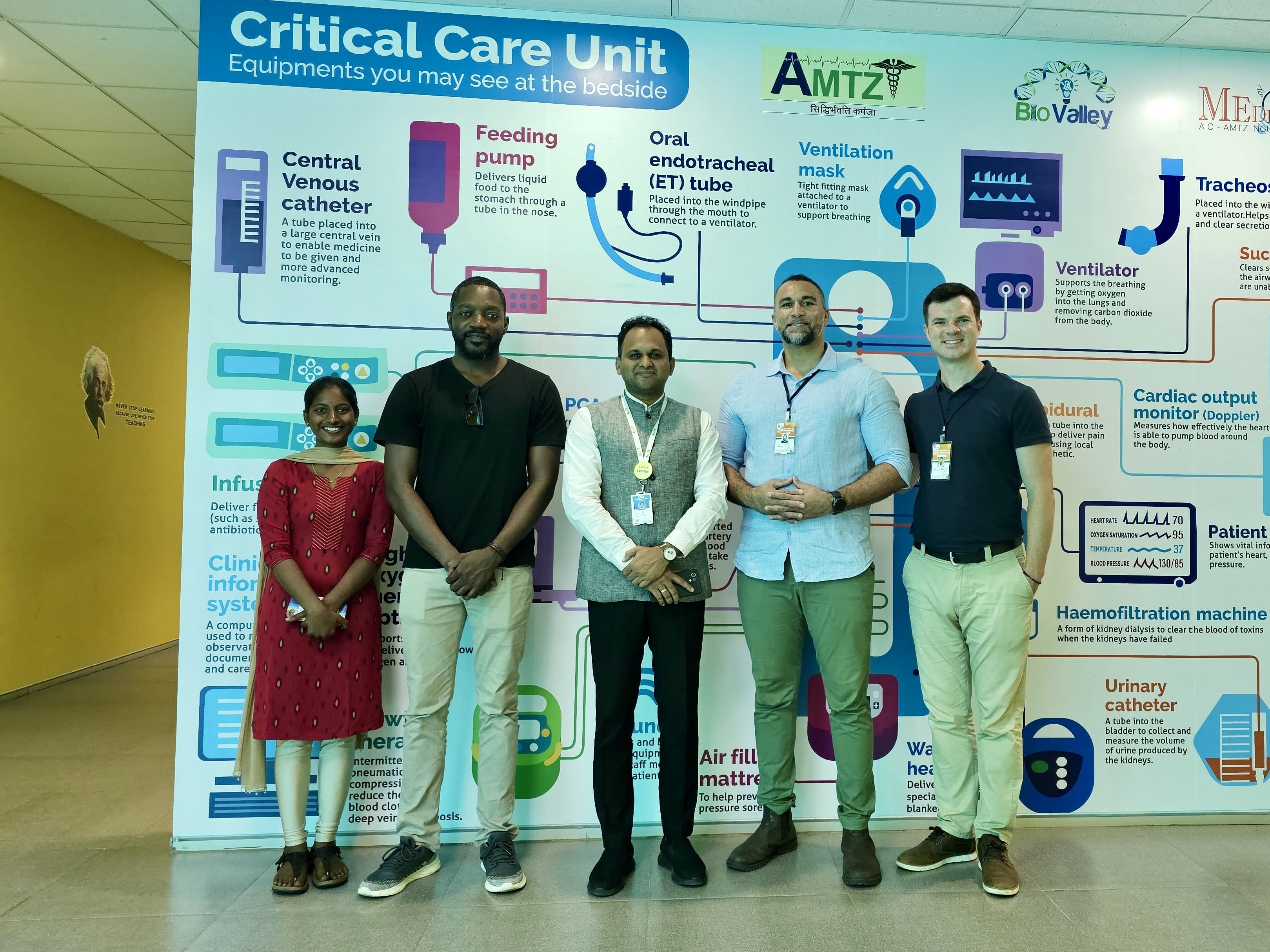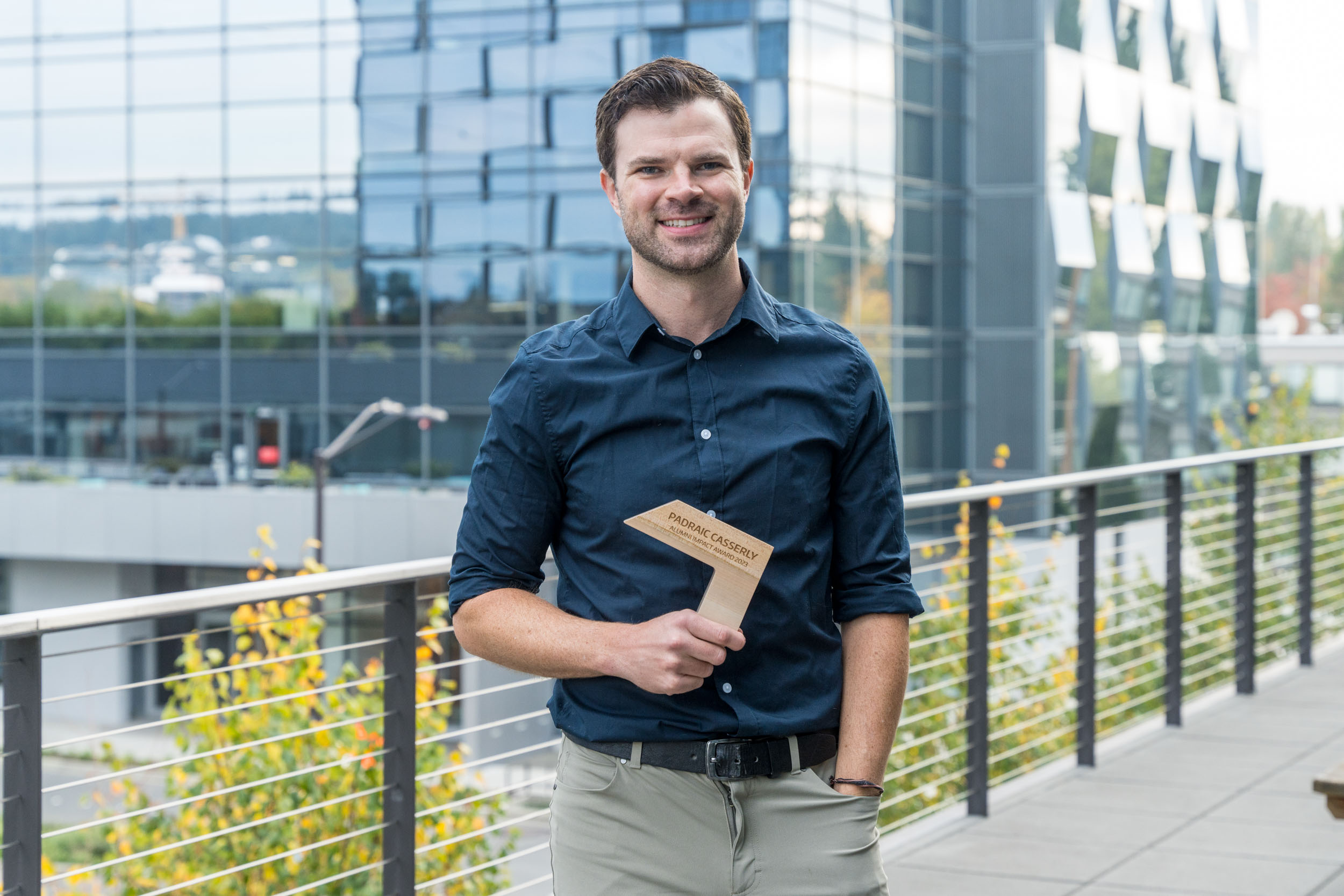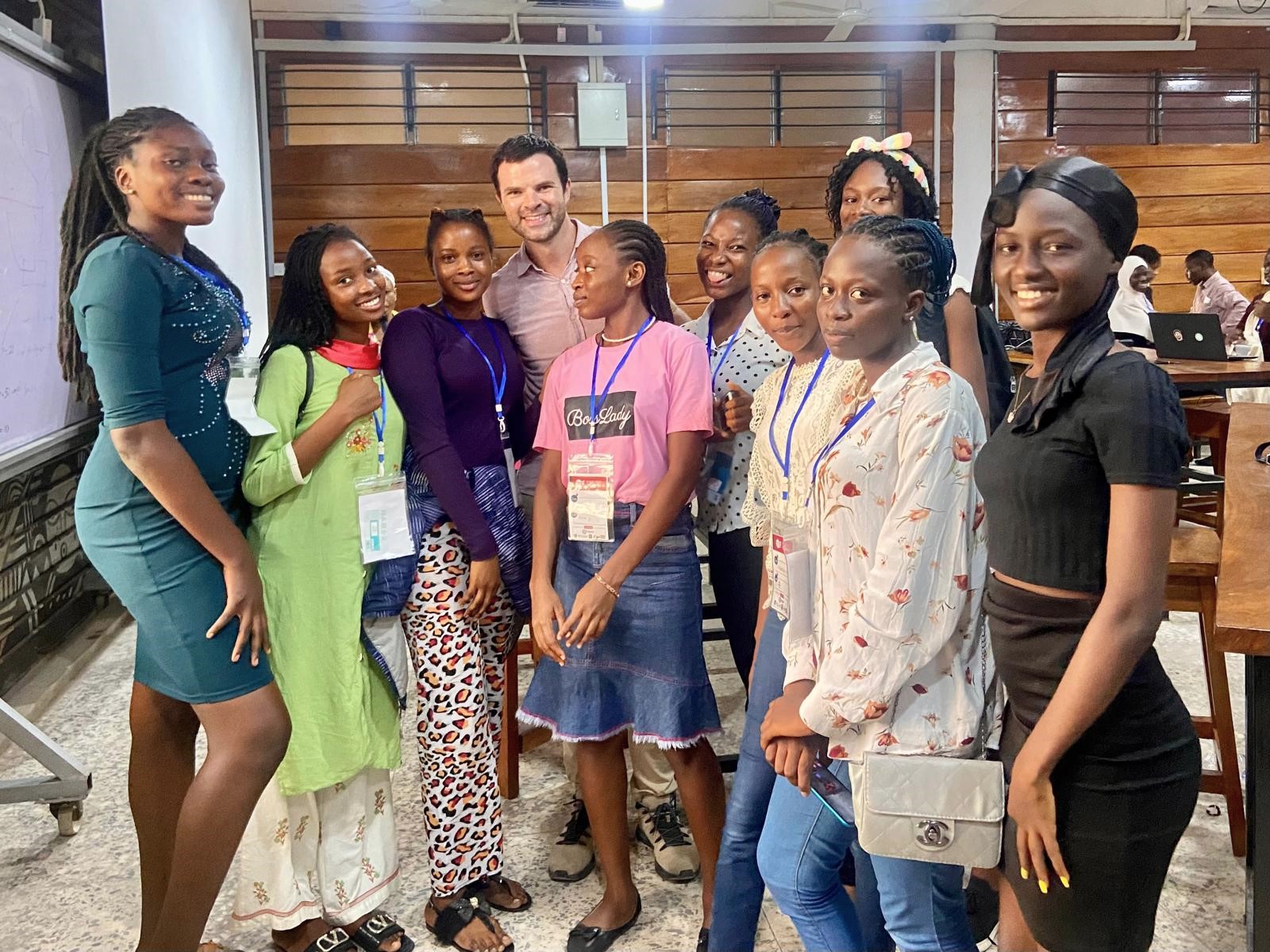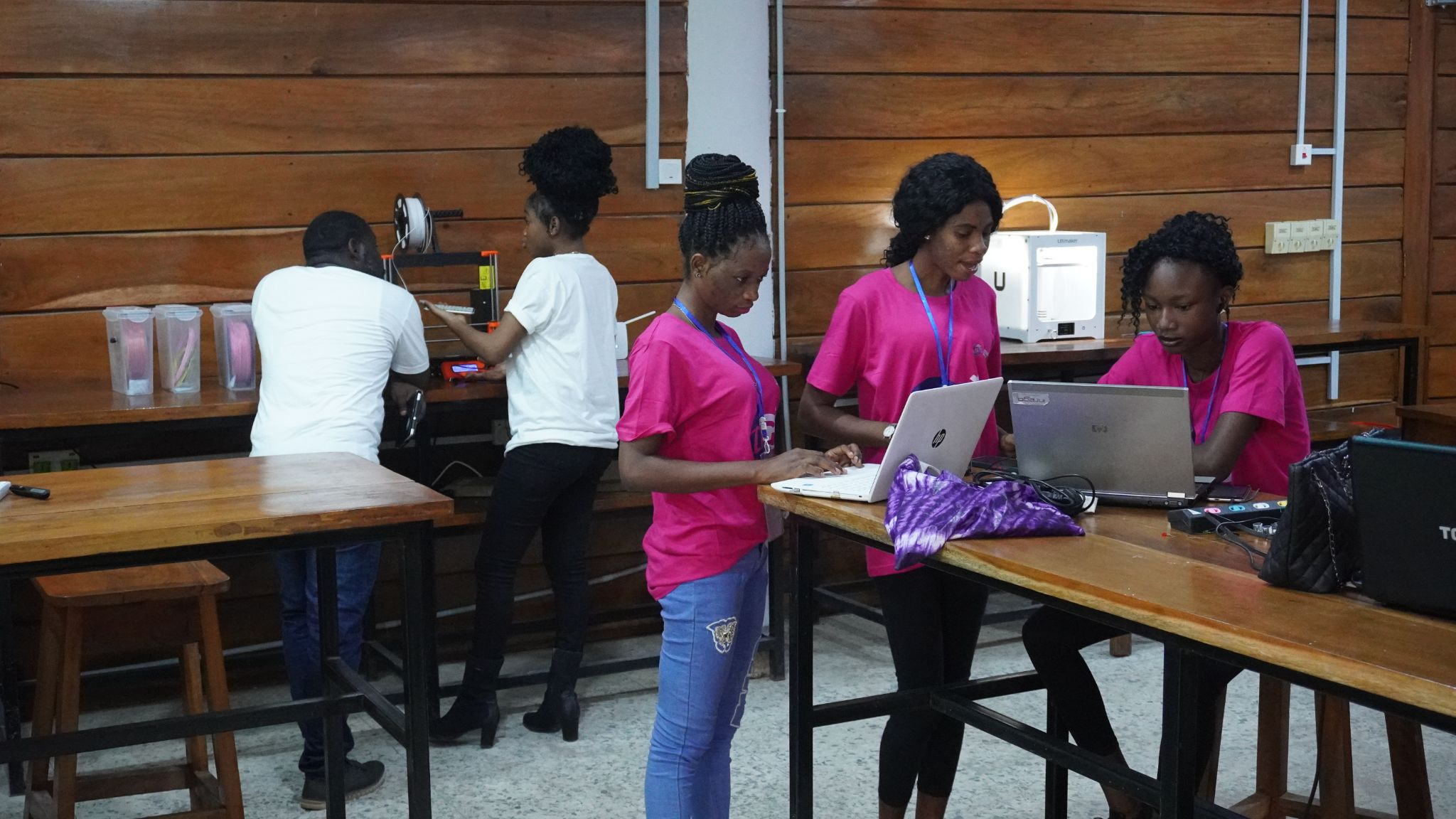By David Fenigsohn
Photo: Casserly and his team of Nigerian makerspace technicians from the University of Ibadan and University of Lagos
Padraic Casserly (MSTI 2018) is on a quest to improve global health – and he’s doing so one community at a time through his unique blend of interdisciplinary training, technical expertise, and first-hand experience around the world.

Casserly with two other World Health Innovation Fellows (from South Africa and Kenya) and two representatives from the medical technology incubation center at the Andhra Pradesh MedTech Zone in Visakhapatnam, India.
A graduate of the University of Washington’s interdisciplinary master’s program in technology innovation (MSTI) offered by the Global Innovation Exchange, Casserly has spent years living and working as a global health professional in Senegal, Ghana, Nigeria, Uganda, Ethiopia, Mauritius, India and beyond. As a result, he has developed a deep appreciation for the immense potential of technology to help patients and caregivers in need.
“Clinicians express frustration in not being able to deliver the type of care they want because of technology, resource, or workflow challenges,” Casserly explains. “These types of working environments, while challenging for clinicians and patients, provide fertile ground for the development of new, impactful innovations.”
Prior to enrolling at the UW’s Global Innovation Exchange, Casserly had earned a BS and MS in biomedical engineering from the University of Wisconsin-Madison. He then spent three years teaching biomedical engineering courses at Jimma University in Ethiopia and working with a local team to develop medical devices for the surgical department at the university’s teaching hospital. In conducting this work, Casserly realized that to become a better educator and global health professional, he would need to upgrade his technical and business skills.

Casserly with the 2023 Alumni Impact Award
“I looked at the curricula of graduate programs around the world and I was most impressed by the interdisciplinary curriculum of the MSTI program which, in my view, offered a great balance of technical, business, and design thinking concepts,” explains Casserly. “I was also attracted to the MSTI program because of the University of Washington's proximity to world-leading technology companies and global health and development organizations.”
After completing the MSTI program, Casserly earned an MS in Engineering (Data Science & IT) at Tsinghua University in Beijing through GIX’s unique dual-degree option. Awarded a prestigious Fulbright Scholarship by the U.S. Department of State, Casserly has since worked with the University of Mauritius and the Central Water Authority of the Mauritian federal government to deploy a new groundwater sensing technology which monitors groundwater levels on the island nation of Mauritius. As if that weren’t impressive enough, he then spent three years with Rice University’s Rice360 Institute for Global Health Technologies at the University of Ibadan in Nigeria. It’s easy to understand, then, why Padraic Casserly was recognized last year as the very first recipient of the Alumni Impact Award by UW’s Global Innovation Exchange.

Casserly with participants from a technology bootcamp for young women at the makerspace that he helped establish at the University of Ibadan.
In addition to his passion for addressing inequities in global health, Casserly is also a strong advocate for educating future innovators. “Given the uniqueness of health challenges around the globe,” explains Casserly, “it is imperative that quality education and support are made available to empower local innovators and entrepreneurs so that they can solve the diverse challenges faced in their communities.”
With that in mind, this past year came full circle as he returned to GIX as an instructor himself, teaching Hardware/Software Labs and Managing Data & Signal Processing courses. “Rejoining the MSTI team as a teaching faculty member was a special opportunity,” he says. “It was a great privilege to be able to work alongside the same instructors who were instrumental in my own education. Through this new role, I enjoyed networking with researchers at the University of Washington, and I particularly enjoyed supporting student education.”

Young women using 3D printers during the Ignite Tech in Girls bootcamp at the University of Ibadan Design Studio. Prior to the bootcamp, none of the participants had previously used (or heard of) 3D printers, CAD software, or even Microsoft PowerPoint.

 Back to News
Back to News

